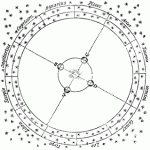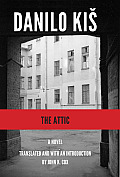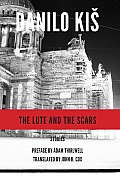Dalkey Archive in the next few weeks brings us a bumper crop of new translations of the great Danilo Kiš (pronounced quiche), including his first novel, Mansarda, translated here as The Attic, written in Belgrade in 1962 and finding its twenty-seven-year-old author in an unfamiliarly buoyant mood. Brodsky wrote of the later, darker Kiš that his was an art “more devastating than statistics,” in which “tragedy gets redefined as an occasion for time’s high eloquence.”
 Back at the time I think I first met her, I was feverishly demanding answers from life, and so I was completely caught up in myself—that is, caught up in the vital issues of existence.
Back at the time I think I first met her, I was feverishly demanding answers from life, and so I was completely caught up in myself—that is, caught up in the vital issues of existence.
Here are some of the questions to which I was seeking answers:
—the issue of the organic exchange of matter and
—the issue of nourishment
—metempsychosis
—life on other planets and
—out in space
—the age of the earth
—the difference between culture and civilization
—the race issue
—apoliticism or engagement
—kindness or heedlessness
—Superman or Everyman
—idealism or materialism
—Don Quixote or Sancho Panza
—Hamlet or Don Juan
—pessimism or optimism
—death or suicide
and so on and so forth.
These problems and a dozen more like them stood before me like an army of moody and taciturn sphinxes. And so, right when I had reached issue number nine—the issue of nourishment—after having solved the first eight problems in one fashion or another, the last addition to the list turned up: the question of love . . .
Broken down into its component parts, this issue had—in a concrete case—the following determinants:
Question: What color are her eyes?
Hypotheses: Green, blue, blue-green, the color of ripe olives, aquamarine, like the evening skies over the Adriatic, over Madagascar, over Odessa, over Celebes; like the sea at Brač, at the Cape of Good Hope, etc.
Question: The color of her hair?
Hypotheses: Brown, blonde, like fairy hair, hair like the Lady of the Lake’s, the color of mellow moonlight, of pure sunny flax, of a sunny day . . .
Her voice?
The voice of a silver harp, of a viola with a mute, of a Renaissance lute, the voice of a Swedish guitar with thirteen strings, of Gothic organs or a miniature harpsichord, of a violin staccato or a guitar arpeggio in a minor key.
Her hands, her caresses?
Her kisses?
Breasts, thighs, hips?
So, this is how she came striding up to me, with this precious baroque burden, with the gait of a tame beast of prey and the wind in her hair.
It was like this:
It was right when I—along with Billy Wiseass—wanted to dedicate myself to philosophy, and we had without much effort just arrived at that famous ninth problem, when he proposed that we skip it, since it was pretty vulgar and of no interest to real philosophers, and instead dedicate ourselves to astronomy and begin that whole business about the stars and planets.
Naturally I agreed.
To this end we sold all our things (that is to say, his coat and mine, and several books that we had wrung out like lemons and thus could have tossed into schoolhouse urinals anyway) and moved into a mansarda, a small attic loft on the outskirts of the city. There we gaped at the stars day after day, or rather night after night, and discovered several galaxies we had never before heard about or seen. We christened one star from the constellation of Orion “Undiscovered Love,” and a second one “Billy Wiseass,” and a third star we christened with my name (let’s let that stay a little secret), and a fourth we named in a straightforward and pretty vulgar manner: Hunger.
In this way we justified our inconsistency and our return to the grand and unworthy question bearing the cabalistic number 9.
“Allow me,” I said, “to introduce my friend to you: Billy Wiseass.”
“Oh,” she remarked. “You must surely be a philosopher.”
“No,” I said. “He’s an astronomer.”
“Yes,” Billy Wiseass said, “and he’s a—”
“—globetrotter,” I interrupted, aiming for his rawest nerve. (I’ve never liked to bare my true nature in public.)
“Oh,” she replied and her eyes skimmed across a cloud.
“Yes,” I said. “I’ve just returned from the Cape of Good Hope by way of the Côte d’Azur.”
“Lucky you!” she said.
“Lucky us?” I asked.
“Lucky us,” said Billy Wiseass.
The autumn of the year 7464 (according to the Byzantine calendar) was foggy and wet, yet the foliage turned yellow and dried up overnight, so that one morning I was astonished to discover that the branches were as naked as pipes. All of this occurred so unexpectedly!
“So what’s your name, actually?” she asked the next day. “I assume it’s not ‘Cape of Good Hope.’”
“Orphée,” I said. “Orpheus.”
Billy Consummate Liar confirmed it:
“Look here, Magdalena,” he said. “Why shouldn’t you be called Eurydice? He undoubtedly meant to suggest that next . . . Right, Orpheus?”
“Of course,” I said. “That goes without saying. If you have no objection.”
“Oh,” she said. “How strange you are!”
Then, a surprise attack:
“So where’s your guitar, Orpheus?”
“In the attic,” I said.
“Which attic?” she asked.
“We live there because of its proximity to the stars. You understand. We will rename ‘Hunger’ . . . ‘Eurydice.’ Do you like that idea?”
“I don’t get it,” she said.
“In order for one star at least to bear your name.”
“My name isn’t Magdalena.”
“Who said anything about Magdalena? I said ‘Eurydice.’”
“Oh,” she said. “I don’t care. But I would like to see this star.”
“Certainly,” I said. “We will select a star that is worthy of your name.”
The next day I led her up the dark wooden stairs to the attic. I had already chased Billy Wiseass out, and I explained away his absence by expressing my amazement that he wasn’t around.
“That’s not nice of him,” I said.
“It’s not,” she agreed.
“Maybe he left to go to the observatory,” I said in his defense.
“But where is your guitar?” she asked, casting a glance around the room.
The room resembled the hold of one of those small sailboats pitching back and forth on the high seas, lost in the dark of night. On the walls the dampness had sketched out wondrous designs of the flora and fauna that bloom and thrive only in dreams. On the ceiling was a depiction of the birth of the world from the embrace of dewy sleep and tentative wakefulness, while in the four corners stood symbolic illustrations of the four continents: the African summer, the Asian spring, the snows of America, European autumn.
Mastodons and reptiles grazed on the walls, and hummingbirds plucked thick mucus from the eyelashes of a woolly mammoth. Flocks of wild doves (the last examples of which were to be found in this attic) and cranes and swallows covered the walls, forming an enormous wedge in the shape of the numeral 1, thereby providing an illustration of biblical brotherhood and the mythical marvel of friendship: And the swallow will build its nest in the ear of the mastodon, and the hummingbird will comb the leopard’s mane with its silvery beak, and the woodpecker will clean the teeth of the crocodiles of Niagara and the Holy Nile. (The Gospel according to Billy Wiseass, translated into Mansardic from the Galactic and rendered in verse by –——, known as Orphée or Orpheus.) […]
“It isn’t actually a guitar,” I said.
“It’s not a guitar?”
“It’s a Renaissance lute,” I said. “You’re probably wondering . . .”
“Oh!” she said, alarmed. “Something is crawling up my leg.”
“It’s nothing,” I said. “A mouse, for sure.”
“A mouse?!”
“Well, what else could it be? The snake’s already asleep.”
“Oh, God!”
“It’s over there, under the bell-jar by the books. We extracted all the poison from it. I brought it back from Ceylon,” I noted with pride.
“And what do you want with a snake?” she asked.
“Are you familiar with the legend of Orpheus? Of course you must know it.”
“He tamed wild animals with his songs,” she said, trembling.
I continued:
The boulders opened their portals before him, and the Andes and Cordilleras bent their ears to hear.
“So where is this thing of yours, this . . . Renaissance guitar?”
“Lute,” I corrected her.
“Okay, then. Lute.”
Then I opened the rusty little door for cleaning soot out of the stove, and a swarm of squeaking mice and rats came hurtling out.
She leapt onto the bed.
“Now, Eurydice, you are going to hear the song of Orpheus,” I said and struck up a tender arpeggio in a minor key.
I sang softly:
A rose petal your pillow will be,
and tulips your footsteps will mourn.
She sat with her legs folded beneath her and watched me—with fright or with amazement, I don’t know.
Then she said: “Look! Look!”
“Eurydice,” I said with pathos in my voice. “You can stretch out your legs.”
She was staring, dumbfounded, at the little iron door. With the dignity and discipline of ants or worker bees, a column of cockroaches was climbing up the wall toward the opening. They waited for the last mouse tail to be yanked in before continuing.
When the final bug had made its way up the wall, I clapped the iron door shut with my foot and started singing:
A rose petal your pillow will be,
and tulips your footsteps will mourn.
“Not now,” she said. “Not now, please.”
Translated by John K. Cox
Danilo Kiš was born in the Vojvodina, the great crossroads of Mitteleuropa, in 1935. After his father, a Hungarian Jew, died in Auschwitz, his remaining family took refuge in Hungary and returned to Montenegro after the war. Kiš struggled to publish in Titoist Yugoslavia and eventually moved to Paris, where he died in 1989. Eight of his books are now available in English, with introductions by a striking line-up: William Vollman, Aleksandar Hemon, and Adam Thirlwell, as well as Brodsky.
Also new:
And classic Kis:




